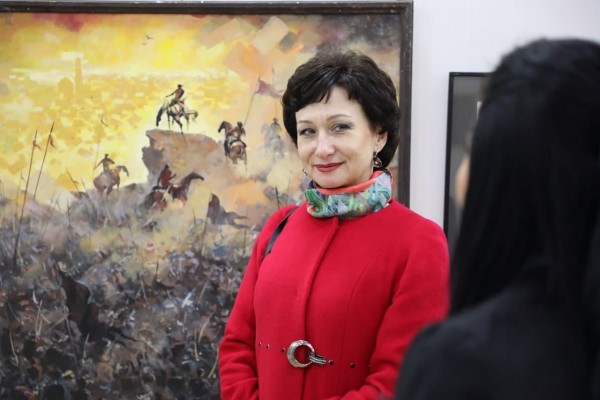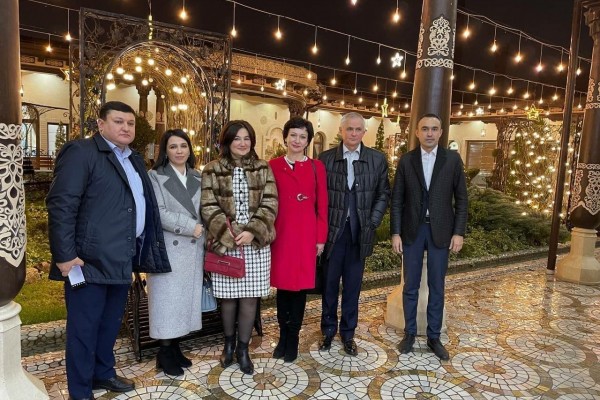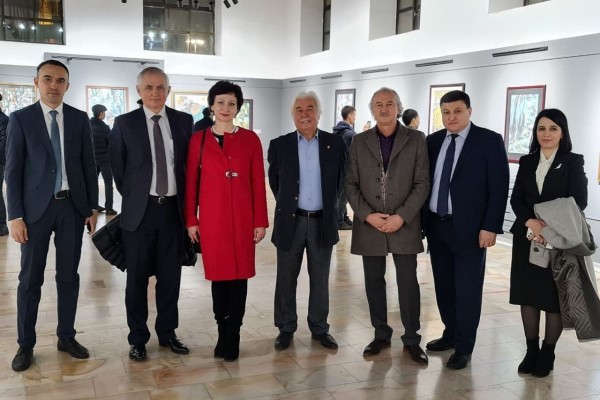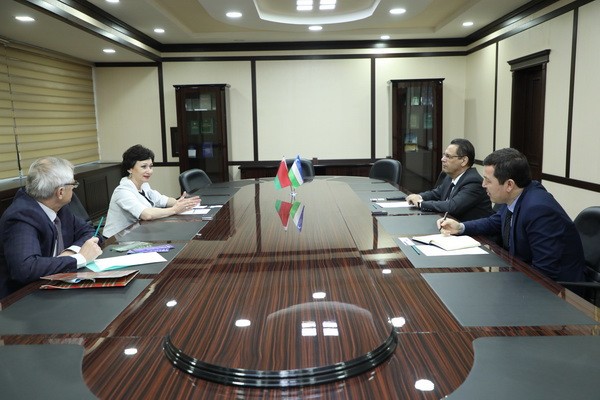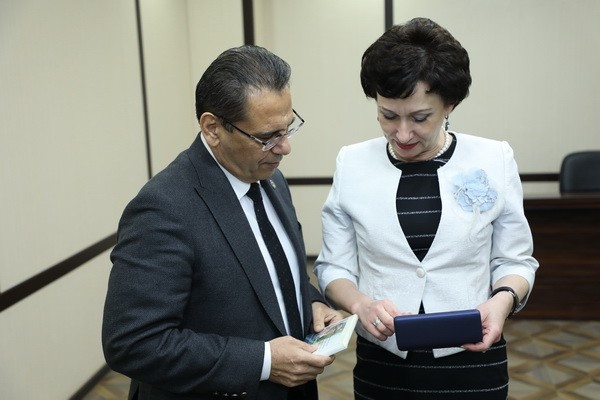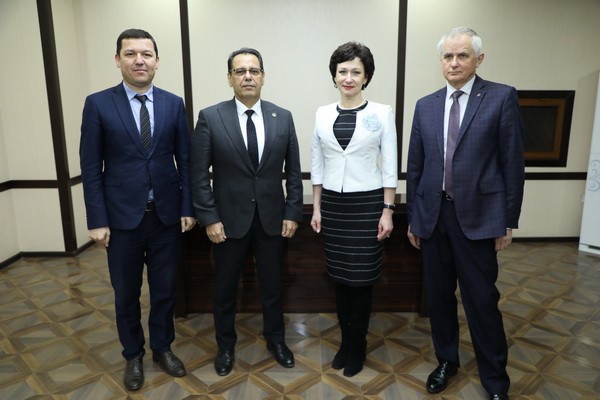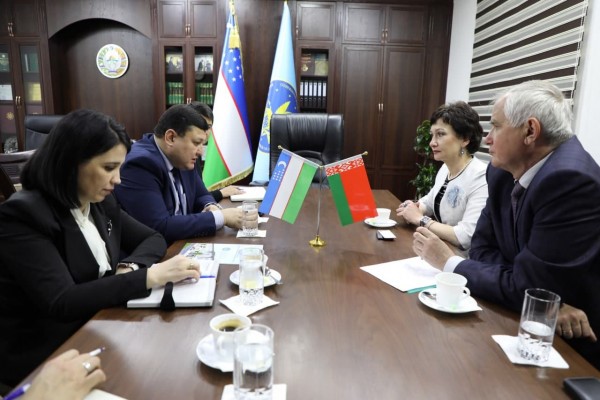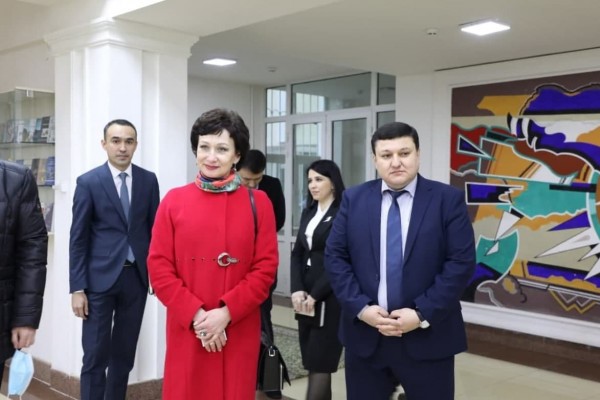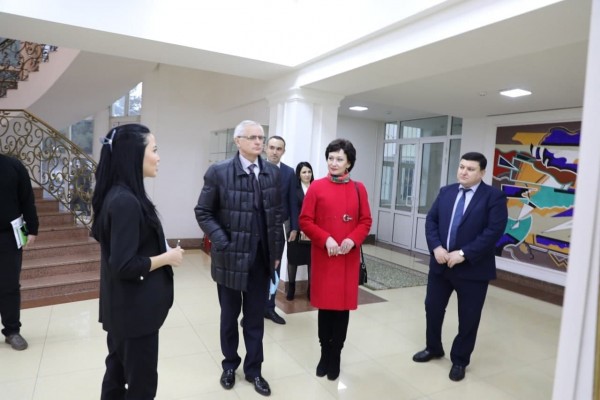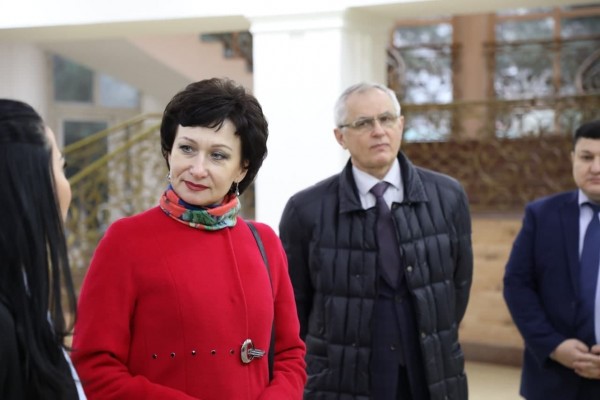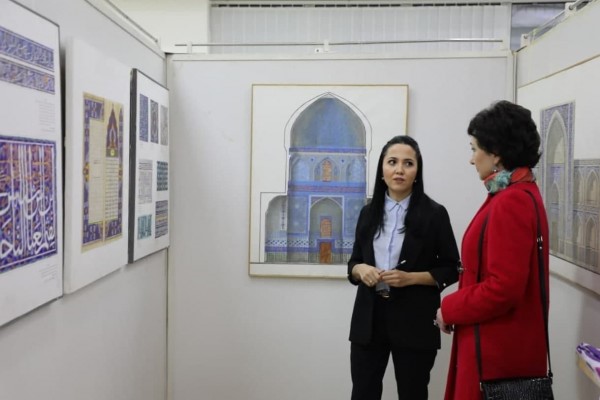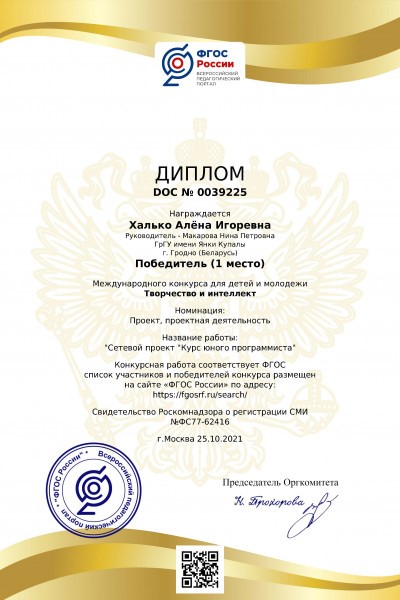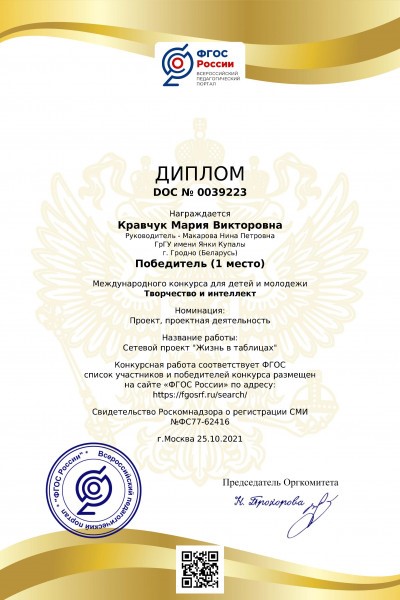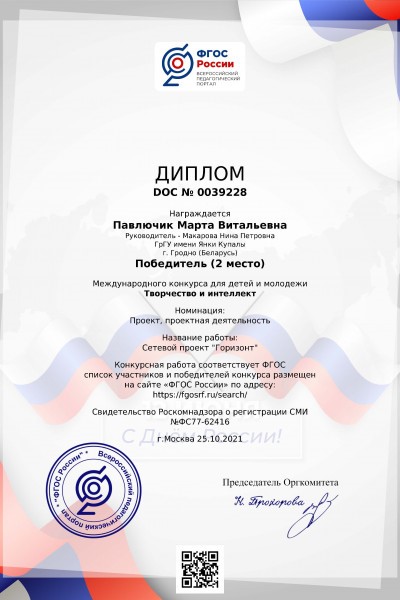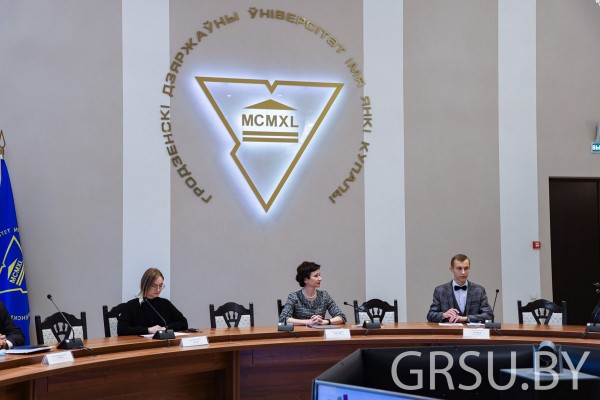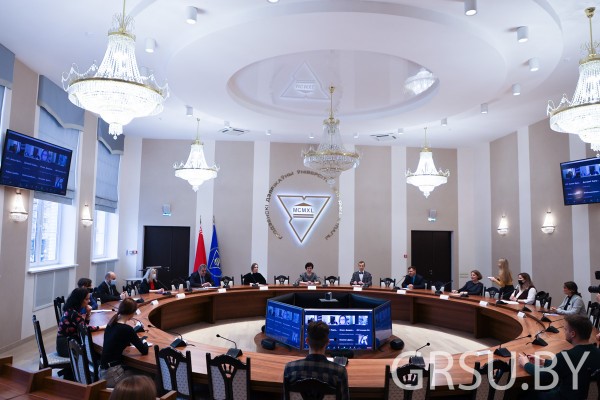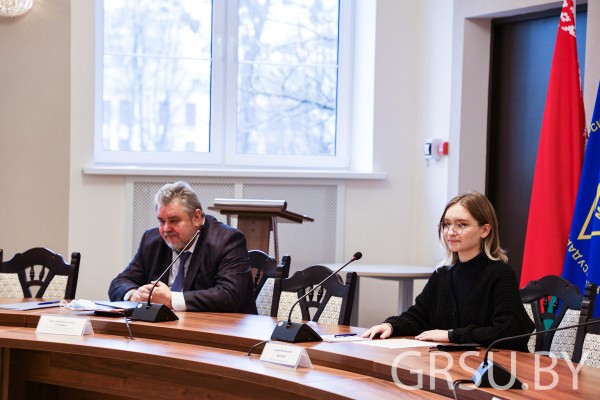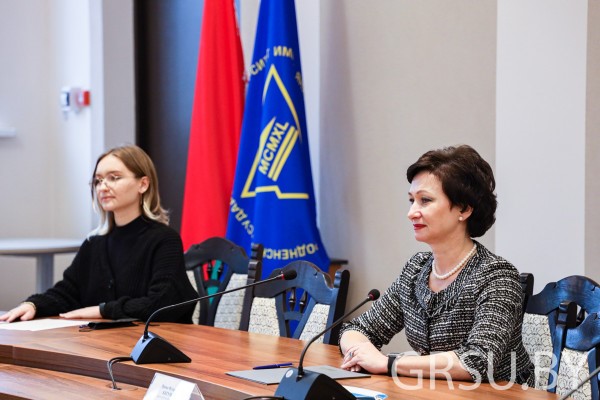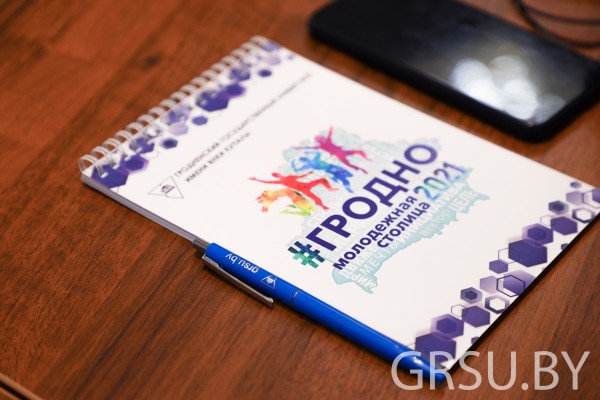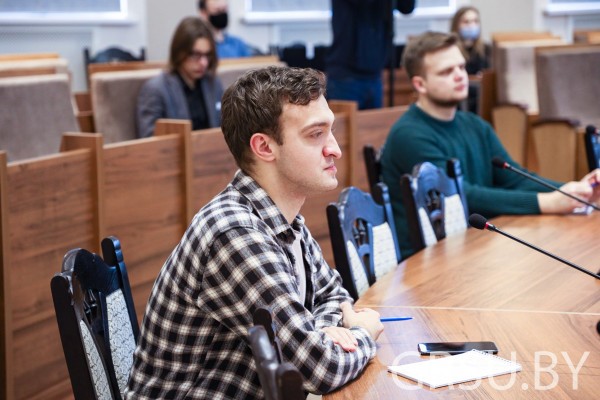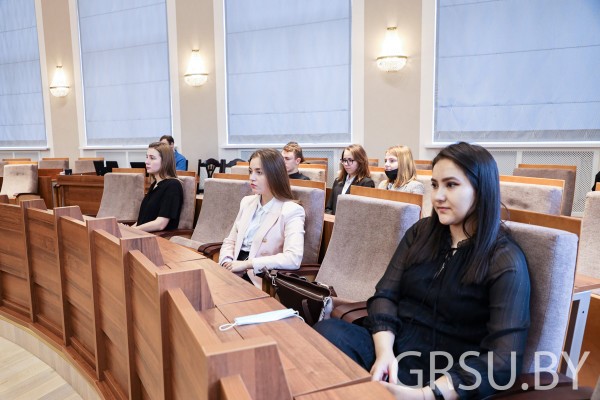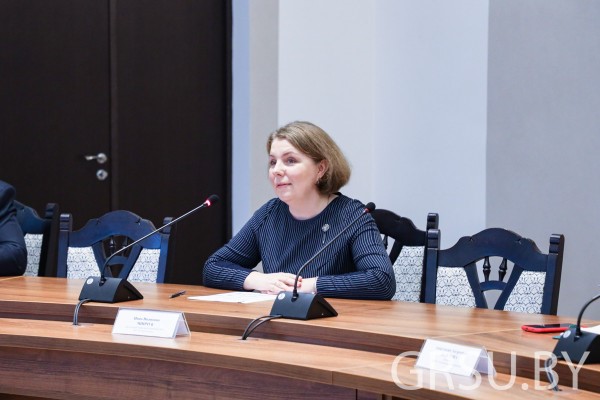
Yanka Kupala
State University of Grodno
Super User
Students of Yanka Kupala State University of Grodno are among the winners of the international competition
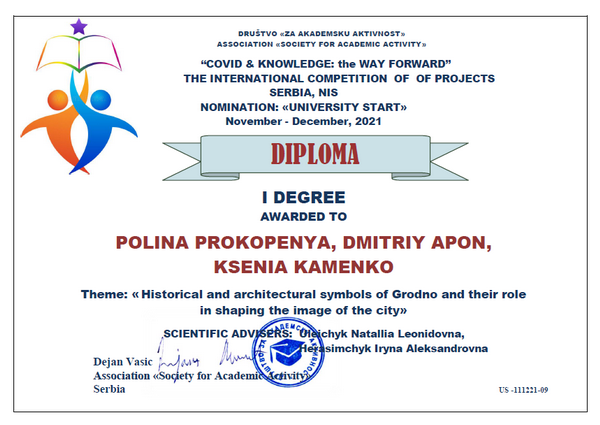
The results of the international project competition "Ocean Of Knowledge" (Društvo "Za Akademsku Aktivnost", Serbia) have been evaluated. The team of YKSUG was awarded a diploma of the first degree for their development.
The research work "Historical and architectural symbols of Grodno and their role in shaping the image of the city" was highly appreciated. The authors of the project are members of the scientific group "Public History: Historical Knowledge in the Modern world", students of the specialities "Journalism" and "History" of the Faculty of History, Communication and Tourism of Yanka Kupala State University – Polina Prokopenya, Dmitry Apon, Ksenia Kamenko. The project leaders – Associate Professor of the Department of Journalism Irina Gerasimchik and Associate Professor of the Department of General and Slavic History Natalia Uleychik were awarded a Diploma of the first degree.
The aim of the project competition is to identify and support the most active and gifted students, stimulate their research, project and innovation activities.
The competition is organized by the scientific "Laboratory of Legal Information" in cooperation with the Faculty of Law of the Moscow State Regional University.
In total, 23 reports were presented at the Symposium by students, undergraduates and postgraduates of the Vitebsk State University named after P.M. Masherov, Moscow Region State University, Yanka Kupala State University of Grodno, Pskov State University, RUDN University, the Institute of Legislation and Comparative Law under the Government of the Russian Federation, Brest State A.S.Pushkin University and the Academy of Public Administration under the President of the Republic of Belarus.
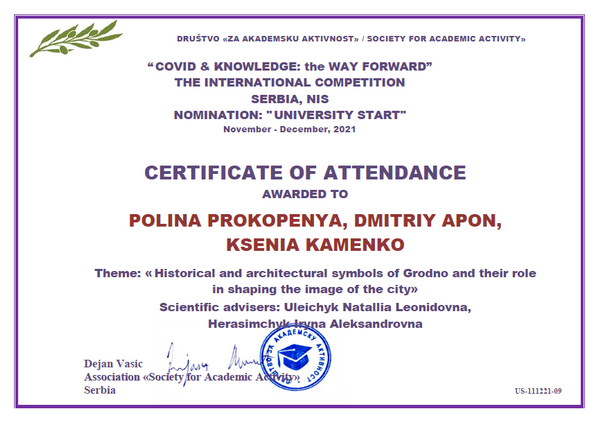
Yanka Kupala State University of Grodno is included in the "UI GreenMetric" sustainable development rating for the first time
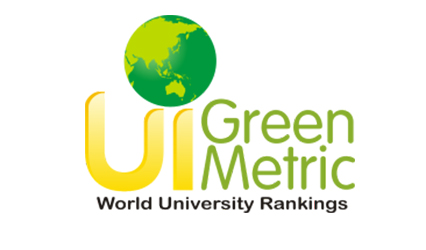
In 2021, the Yanka Kupala State State University approved the "Strategy of Advanced Development" for 2021-2025 and forward-looking until 2030, which identified five main directions of the university's development. One of the strategic directions is compliance with the Sustainable Development Goals, within the framework of which the University participated for the first time in the international rating "UI GreenMetric 2021" and took the 750th place.
The "UI GreenMetric 2021" rating evaluated the principles of environmental friendliness and sustainable development of higher education institutions from 74 countries, including countries of Europe, Asia, America, the Middle East, Oceania and Africa. The first place in the ranking was taken by Wageningen University and a Research Center in the Netherlands. The Republic of Belarus is represented in the ranking by Yanka Kupala State University of Grodno (750th place) and the International Sakharov Environmental Institute of Belarusian State University (782nd place).
The UI GreenMetric rating is an annual international ranking of universities that assesses the efforts of participants in the field of reducing environmental impact, as well as the compliance of education and research with sustainable development goals.
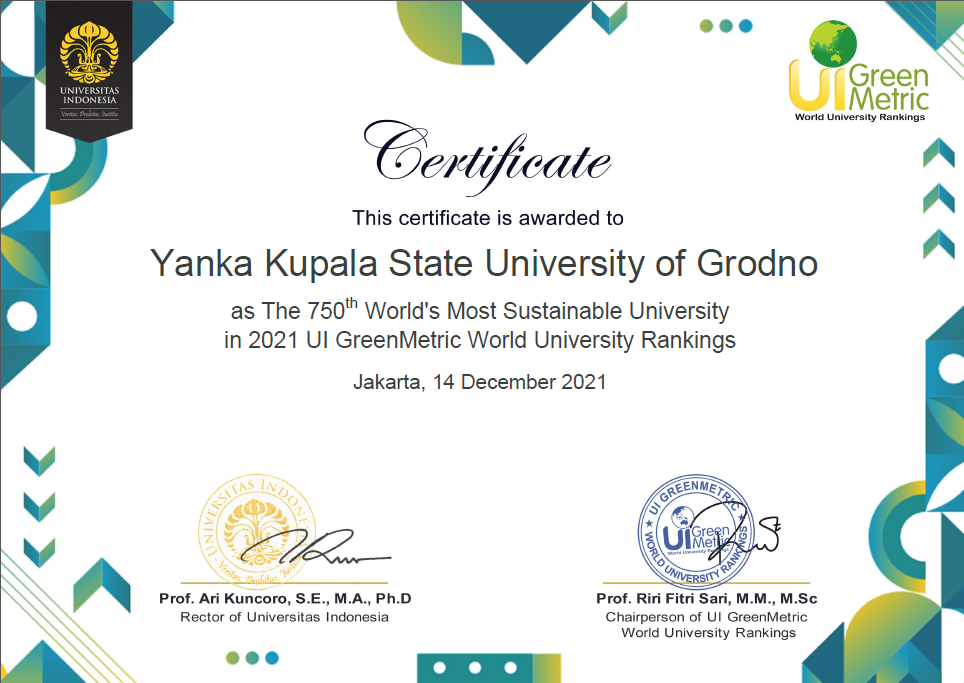
Students of Yanka Kupala State University of Grodno took part in the international project "Union League of Debates" in Moscow
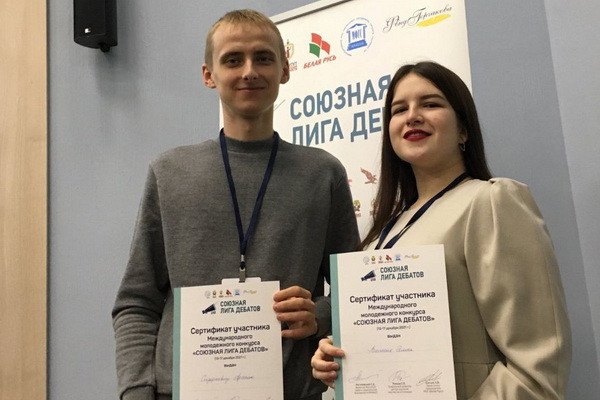
Elina Vialesik, a student of the Faculty of Pedagogy, and Arseniy Sidorkevich, a student of the Faculty of History, Communication and Tourism, presented Yanka Kupala State University of Grodno.
The project activities were held from December 13 to 17 at the Russian Presidential Academy of National Economy and Public Administration. In total, 40 two-person teams from Belarus, Armenia, Kyrgyzstan, Kazakhstan and Russia participated in the project.
The Union League of Debates is a unique project, whose members not only explore the Union State, but also take part in the discussion of the vector of integration of the EAEU countries, establish working contacts.
The project "Union League of Debates" consisted of an absentee elimination round and an intellectual debate session. The participants of the debate were students, young entrepreneurs, journalists and others. Our students performed well on the project and demonstrated a high level of public speaking skills, the ability to argue and convey their position. Each participant passed a competitive selection, in which it was necessary to submit an essay and a video on one of the topics within the framework of the development of integration processes in the post-Soviet countries. The Union League of Debates contest is aimed at developing teamwork skills among Russian and Belarusian youth. It is designed to form the skills of finding joint solutions to complex issues that our countries face.
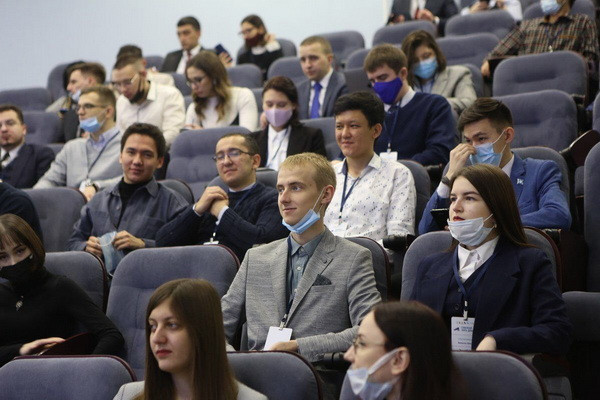
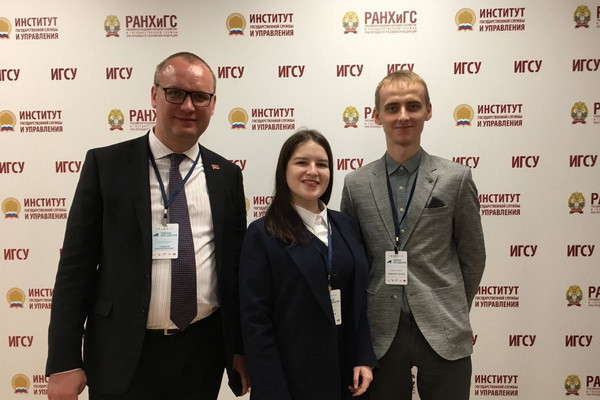
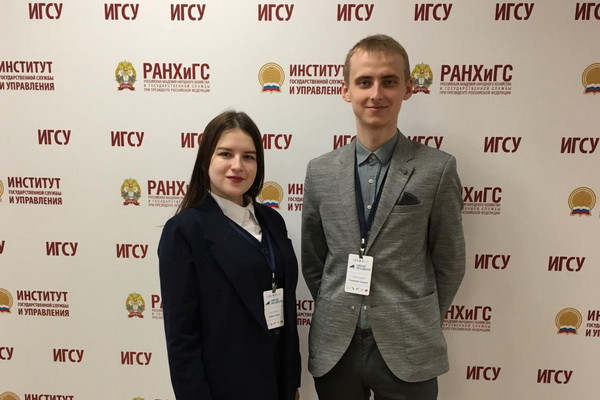
Students of Yanka Kupala State University of Grodno took part in the International Student Olympic Forum
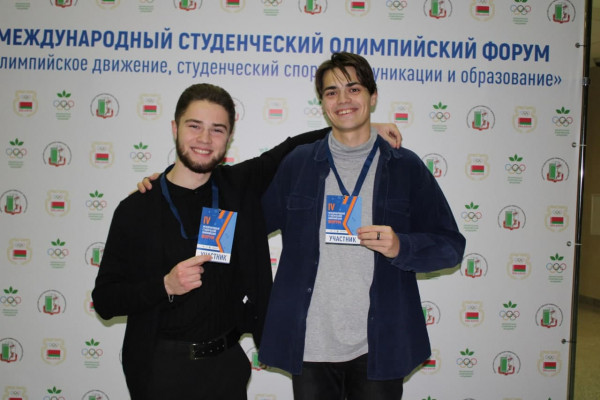
The International Student Olympic Forum "Olympic Movement, Student Sports, Communications and Education" was held for the fourth time. The event took place at the headquarters of the National Olympic Committee of the Republic of Belarus.
Students of the Faculty of Biology and Ecology Vadim Gunko and Ilya Zolotykh presented the topic "Eco-volunteering as a tool of public ecological monitoring of the environment".
Forum participants from Belarus, Russia, Azerbaijan, Uzbekistan, Ukraine and China discussed the development of the Olympic movement in the modern world, ecology and sustainable development of the environment. The forum also raised issues of socio-cultural communication and the development of the Olympic movement in the context of globalization, Olympic education, culture and heritage, sports volunteering and other topics.
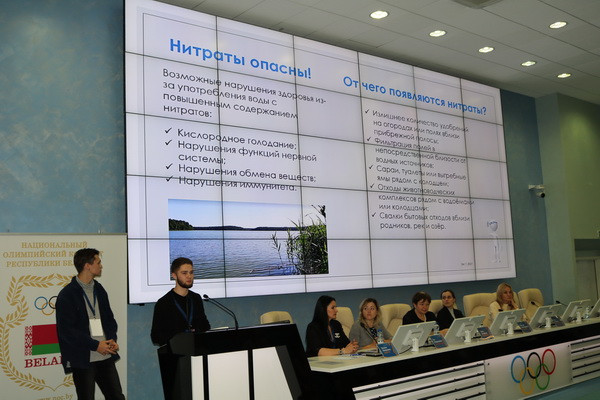
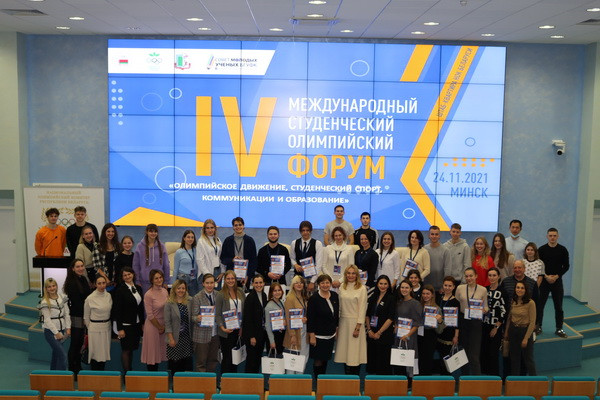
Rector of Yanka Kupala State University of Grodno has a working visit to partner universities of the Republic of Uzbekistan
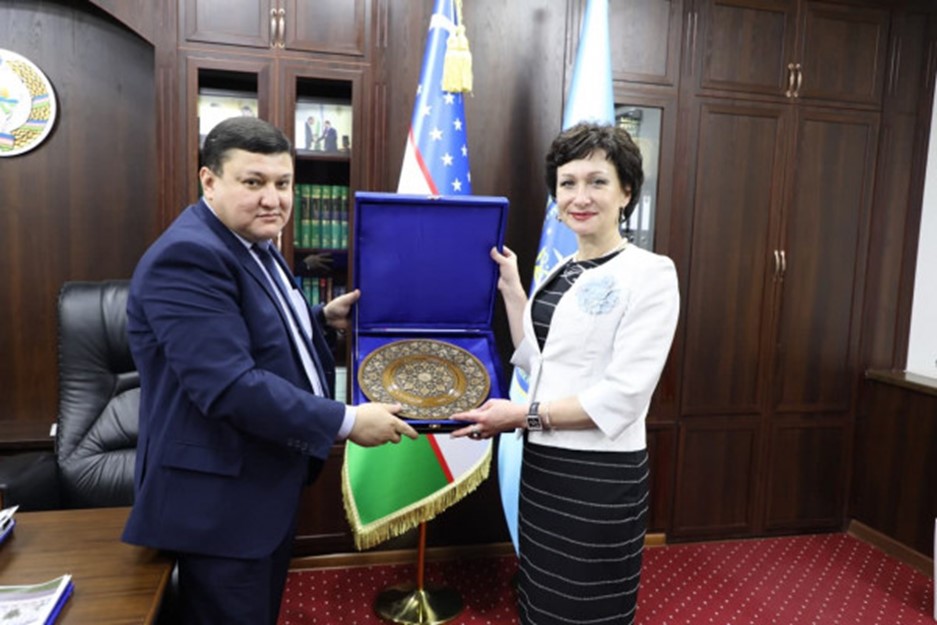
During the business trip Iryna Kiturka, Rector of Yanka Kupala State University of Grodno, and Yury Bialykh, Vice-Rector for Academic Affairs, will visit seven universities in Uzbekistan to form relationships and agree on priority areas of cooperation in the scientific, educational and cultural spheres.
The first day of Iryna Kiturka and Yury Bialykh's visit to Uzbekistan included negotiations at two universities: Tashkent State University of Economics and the National Institute of Art and Design named after Kamoliddin Behzod.
The meeting of the administration of Yanka Kupala State University of Grodno and the Tashkent State University of Economics was held for the first time. During the negotiations, agreements on cooperation in educational and scientific spheres, academic exchange of the staff and students, in particular, on the "Visiting professor" program were reached. This will be reflected in the signing of a cooperation agreement between the two universities in the near future.
The negotiations with the administration of the National Institute of Art and Design named after Kamoliddin Behzod defined ways to develop the existing cooperation. This time, the Parties discussed issues of design and implementation of joint educational programs in the most popular bachelor and master programs. The Parties discussed joint scientific management of master and PhD students of foreign universities, participation of Uzbek students and colleagues in scientific and educational activities, specialized summer schools and trainings.
By the way, cooperation with the National Institute of Arts and Design named after Kamoliddin Behzod already has a history, albeit not very long. In March this year Yury Bialykh, Vice-Rector for Academic Affairs of Yanka Kupala State University of Grodno, had a working visit to Tashkent. The result was the signing of an agreement on international cooperation with the National Institute of Arts and Design named after Kamoliddin Bekhzod. Within the framework of the agreement, Serik Pirmatov, associate professor of the Applied Graphic Art Department at the National Institute of Arts and Design named after Kamoliddin Bekhzod, took part in the 10th international scientific conference "Actual problems of global artistic culture. In Memory of Professor U.D. Rosenfeld", as well as in the program "Visiting Professor” of Yanka Kupala State University of Grodno.
An international conference "Eliza Orzeszkowa and Liudwik Zamenhof in Grodno and Bialystok" was held at Yanka Kupala State University of Grodno
Students of Yanka Kupala State University of Grodno are among the winners and awardees of the International Competition "Creativity and Intellect"
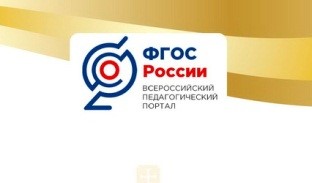
The competition was held on the All-Russia pedagogical portal of the federal state educational standards of Russia.
Students of the Faculty of Mathematics and Informatics at Yanka Kupala State University of Grodno took part in the International Competition for Children and Youth "Creativity and Intellect". According to its results, diplomas in the category "Project, project activity" were awarded to the works of Maria Kravchuk, Alena Halko and Marta Pavliuchik, who are studying in the 4th year and majoring in Mathematics (scientific and pedagogical activity). Maria Kravchuk and Alena Halko took first place by submitting their network projects "Life in Tables" and "Young Programmer Course" for the international competition. Marta Pavliuchyk took second place by presenting her network project "Horizon".
These network projects were created within the academic discipline "Project Activities in Education" under the supervision of Nina Makarova, associate professor of the Department of Modern Programming Technologies of the Faculty of Mathematics and Informatics at Yanka Kupala State University of Grodno.
Yanka Kupala State University of Grodno received a delegation of employees and students of Smolensk State University
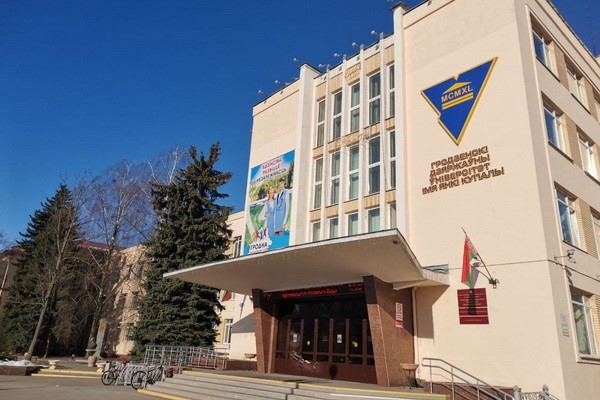
The visit took place from November 3 to November 6 within the framework of the agreement on international cooperation between two universities.
The delegation of employees and students of Smolensk State University was received by the Department of Russian Philology of Yanka Kupala State University of Grodno. The delegation included Valentina Kovaleva, Dean, Ph.D. in Philology; Irina Romanova, Doctor of Philology, Professor, Head of the Literature and Journalism Department, Larisa Pavlova, Doctor of Philology, Professor, Eleonora Kotova, PhD in Philology, Associate Professor, Leonid Kayanidi, PhD in Philology, Associate Professor, Demyan Valuev, the leading specialist of the Literary Museum of Smolensk State University, PhD in History, Associate Professor, Yulia Morozova, a 4th year student of the Faculty of Philology, winner of the regional contest of youth projects and a cameraman Artemenko Denis.
The purpose of the visit of Smolensk State University representatives to Grodno was summarizing cooperation between the Parties in the field of cultural relations, educational and scientific activities, presenting the project "Smolensk Enlightened: Information and Education Portal", the project "Smolensk Land in Literature Monuments", the poetic video-almanac "Personal Poem", folklore materials of Smolensk Regional Studies Bureau, the funds of Smolensk Literary Museum and also informing about the School of young scientists “Quantitative Philology”.
The 3rd international contest of media projects "Student Youth in the Modern World" was opened
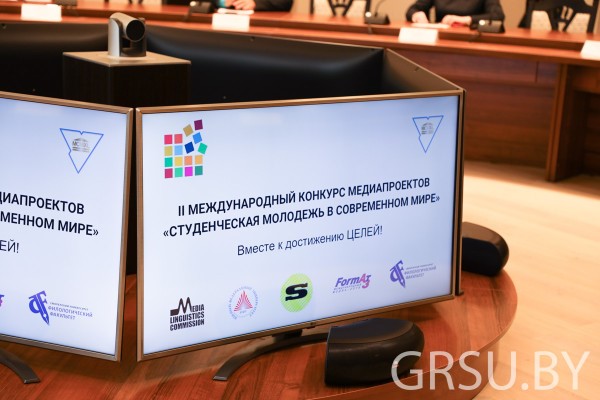
This year's competition is related to the 17 Sustainable Development Goals, which were adopted at the UN Assembly.
The purpose of the competition is realization of each participant's creative potential, as well as organization of international cooperation.
The opening event took place in two formats at once. The online session was joined by colleagues from the Belarusian State University and the Russian Federation.
We remind you that applications for the competition are accepted until December 1.
Alexey Alferov and Evgeny Karmilchik, students of Yanka Kupala State University of Grodno, are the winners of the World Boxing Championships

Belarusian boxers won two medals at the World Championships for the first time in 18 years.
Alexei Alferov, a third-year student of the Faculty of Physical Education, has won a silver medal at the World Championships in Belgrade (Serbia). It is the second award of the Belarusian national team at the world forum. Evgeny Karmilchik, also a third-year student of the Faculty of Physical Education, has earlier won a bronze medal.
Alexey Alferov, competing in the 80 kg category, lost in the decisive battle to his American rival Robbie Gonzalez by a separate decision of the judges. It is worth reminding that in the semi-finals Alexey Alferov did not leave a chance for the Russian athlete Savely Sadoma. In addition, he defeated the Croat Luka Plantic, Iranian Maysam Geshlagi and Irish Keylan Cassidy.
Earlier Evgeny Karmilchik, competing in the 48 kg category, lost in the semi-finals to Kazakhstan's Temirtas Zhusupov. Prior to that, the athlete had three victories over Sri Lanka, Kenya and Mongolia.
It should be noted that Belarusians haven't won two awards of the World Championships since 2003. That time silver went to Magomed Aripgadzhiev (81 kg). Victor Zuev (91 kg) took the bronze.

